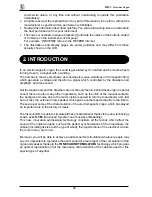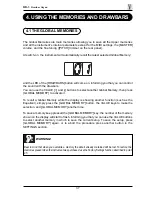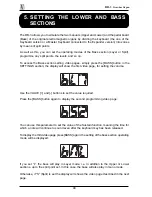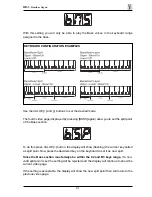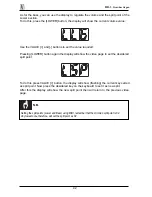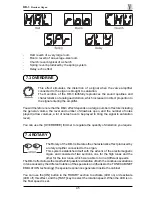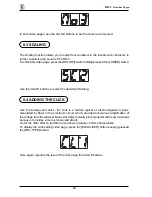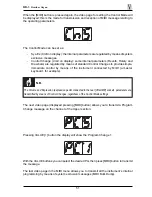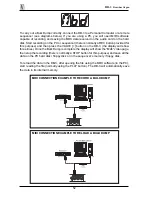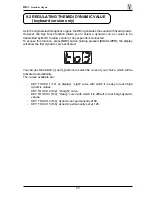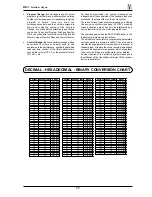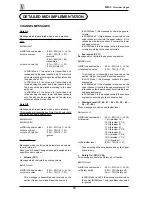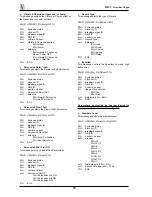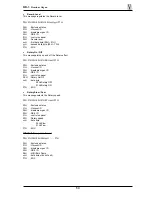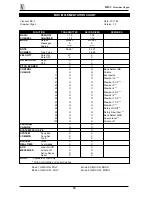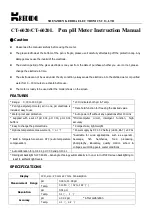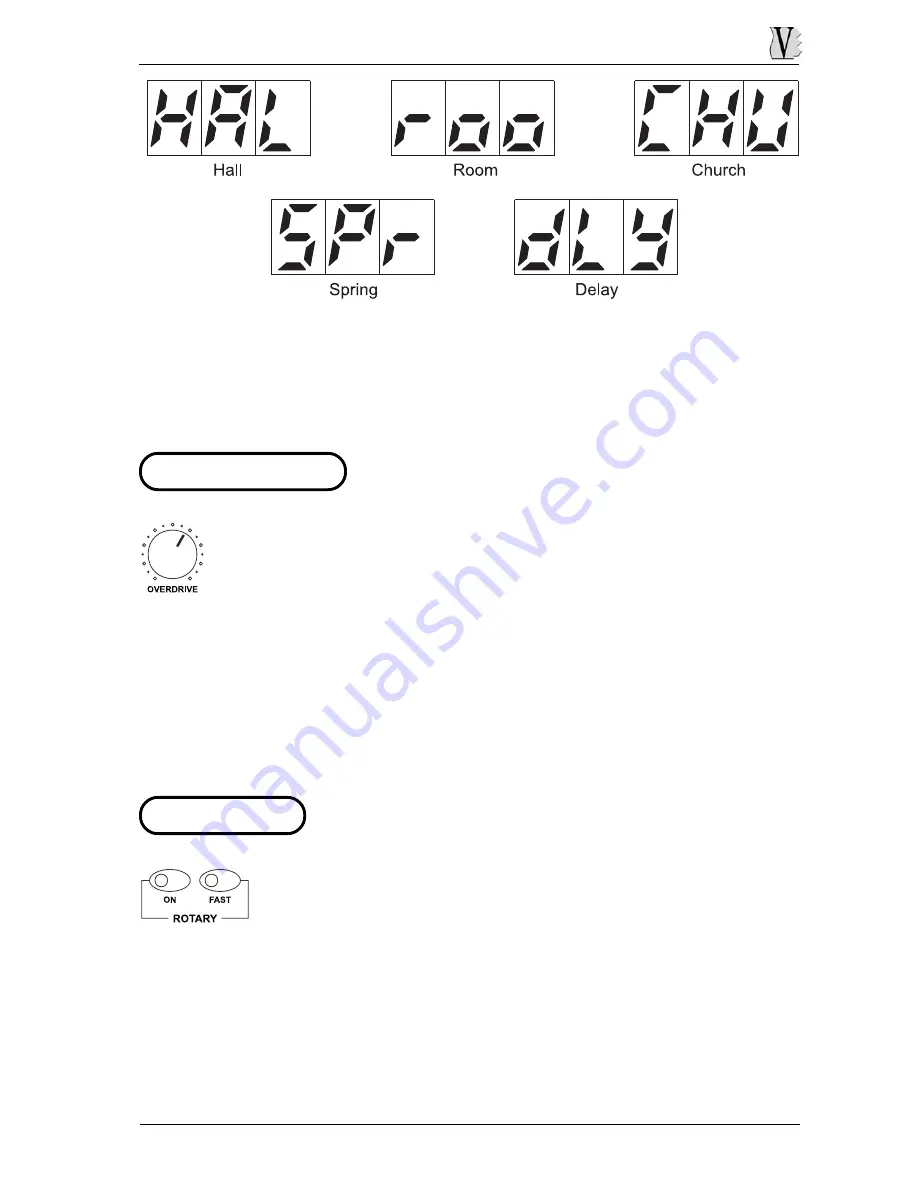
DB-3
Drawbar Organ
-
Hall: reverb of a very large room
-
Room: reverb of an average-size room
-
Church: reverb typical of a church
-
Spring: reverb produced by the spring system
-
Delay: echo effect
7.3 OVERDRIVE
This effect simulates the distortion of a signal when the valve amplifier
connected to the organ is brought to saturation.
The Overdrive of the DB-3 faithfully reproduces the sound qualities and
characteristics of analogue distortion, which increased in direct proportion to
the signal entering the amplifier.
You will therefore note that the DB-3 effect depends on a large number of factors including
the general volume, the level and number of drawbars open, and the number of notes
played (at low volumes, a lot of notes have to be played to bring the signal to saturation
level).
You can use the [OVERDRIVE] trimmer to regulate the quantity of distortion you require.
7.4 ROTARY
The Rotary of the DB-3 simulates the characteristic effect produced by
a rotary amplifier connected to the organ.
This system established itself with the advent of the electromagnetic
organ, and consisted of two sections, one for the high tones and the
other for the low tones, which were able to turn at different speeds.
The DB-3 effect allows the most faithful possible simulation of both the continuous variations
in tone caused by the different rotation of the speakers and (thanks to the TONE CABINET
EMULATION technology) the special resonances generated inside the cabinet.
You can use the [ON] button in the ROTARY section to activate (LED on) or deactivate
(LED off) this effect, and the [FAST] key to select the rotation speed. When the LED is on,
the Fast speed is set.
45
Summary of Contents for DB-3
Page 1: ...DB 3 User Manual ...
Page 4: ......
Page 10: ...DB 3 Drawbar Organ 3 3 CONNECTION EXAMPLES 36 ...


